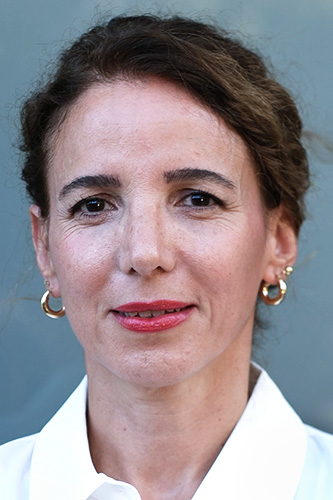


|
||
|
||
A recent invitation to participate in a webinar to discuss ICANN’s Role in Satellite Internet Governance as an enabler of UN Sustainable Development Goal (SDG) 9 prompted me to consider this issue.1 As a legal scholar with expertise in telecommunications infrastructure, I had much to say and discuss about the new mega-constellation phenomenon and its potential role in achieving SDG9, which, for me, is a multifaceted and fascinating subject. However, until then, I did not investigate whether ICANN had planned to or needed to take action to remain compatible with increased reliance on satellites for global broadband connectivity. Remembering the ICANN’s technical and policy response to some questions regarding ICANN’s role in the 5G-based connectivity ecosystem, I searched for one for satellite-based broadband. I could not find one, and my limited number of contacts are unaware of such a document or an ongoing study. This implied to me, first, that the system works in its current application, but also that there is a lack of output on technical dimensions of the subject. The policy experts, researchers, and regulators, most of whom rely on these publications, would be reassured if an informative and accessible paper had been produced.
In 2020, the chief technology officer of ICANN responded to concerns as to whether the current system governed by ICANN would remain compatible with the application of 5G, especially its role in IoT use. For example, some of these questions were: Is DNS still operable in a 5G world, especially considering latency-sensitive applications? Is the set of unique identifiers ICANN helps coordinate still useful, or does 5G bring the need for a different set of identifiers? The response prepared in an accessible language reassured the community at large and equipped them with the necessary information to engage in their relevant fields and roles. These types of technical responses are essential in a highly politicised environment, where actors representing varying interest groups may take advantage of a lack of accessible information to challenge the viability of systems that would remain resilient in the face of technological advancement.2 As the underlying technology and the industry matures, it’s projected that reliance on mega-constellations for broadband internet services will rapidly grow. They are poised to become a crucial part of both wireless and wired global communication infrastructures. A report from ICANN, akin to its reaction to 5G would not only be significant to address current concerns but also set the groundwork as Non-Terrestrial Networks (NTN) expand beyond the Earth’s orbits.
Stakeholders contribute to the broader global governance systems, not only through responding to problems but also through proactively addressing relevant issues, which at times could validate the system’s viability in the use of new technology. The use of mega-constellations for broadband service took the world by storm and raised multiple legal and policy questions regarding their use. In response to these developments, the stakeholders expect the technical community to issue technical or policy papers, where relevant, based on their expertise. In ICANN’s case, this may be an independent study or one that adds to the 5G paper evaluating the integration of these systems to the 5G ecosystem or one that provides more detailed information about potential problems or the inexistence of potential problems to the ICANN-governed part of the technical infrastructure in the space-terrestrial integrated network (STIN) and NTN for supporting 5G in remote areas. ICANN has long emphasised that to maximise the benefits the Internet can bring, the model of a single Internet based on a global system of unique identifiers should be preserved. This directly relates to SDG 9 and what type of internet access would bring the developmental benefits. UN SDG 9 is about “building resilient infrastructure, promoting sustainable industrialisation, and fostering innovation”. It is one of the 17 Sustainable Development Goals the UN General Assembly adopted in 2015. This goal aims to ensure that every society has reliable and sustainable infrastructure supporting economic development and human well-being.
The countries that need it are interested and are using the broadband services offered by mega-constellations. What technical organisations can do to help them in their endeavour is clarify how the addition of this new infrastructure affects their services, the risks and how they plan to respond to the risks. The mega constellations offer the quickest solution for making broadband connectivity available anywhere, including in underserved areas of the globe, where it is most needed. Opportunities available to societies with access to meaningful connectivity and those without access are vast. This is shortly referred to as the digital divide. The digital divide, when sustained, expands the development gap, and the adverse impact grows exponentially. That is why time is critical when discussing the solutions to bridge this gap. Technical and timely information by trusted organisations like ICANN will provide the much-needed assurance for countries to make informed decisions. It is with informed decisions that countries can build their way to development in a sustainable manner.
Sponsored byIPv4.Global

Sponsored byRadix

Sponsored byCSC

Sponsored byVerisign

Sponsored byDNIB.com

Sponsored byWhoisXML API

Sponsored byVerisign

Are you mad or joking? The boomers at @ICANN can’t even govern AfriNIC which has had obvious and serious problems for a decade. Heck its in receivership and ICANN isn’t doing anything. How would they handle aggressions from Bezos or Musk ?
Laughable. Risible to highest degree.